University makes progress on Black At App State demands, chancellor engaged in diversity recruitment and retention
The Black At App State Collective at the “Wake the Chancellor” march against injustice Aug. 31, a month after releasing their initial demands to the university.
November 20, 2020
Five months into the Black at App State Collective’s 36-month demand implementation deadline, the collective alongside university administration held yet another meeting on Nov. 12. Here the two discussed faculty and staff diversity recruitment and retention.
A steering committee within the Accountability Team was recently introduced by both Black At App State and university administration. Consisting of six students, student affairs personnel, and members of the chancellor’s cabinet, this committee will devote their time to specific demands made by the collective.
In Black at App State’s initial July demands, the group called for change in multiple areas of admissions, faculty, student retention, and overall support, like:
- Mandatory bias training
- An increase in Black and Brown representation
- Exit interviews from students, faculty and staff of color
- A comprehensive report regarding diversity, equity and inclusion
According to university data, “underrepresented” faculty members make up 10.7% of the 1,429 total faculty members for the 2020-21 academic year. The data describes “underrepresented” as all races and ethnicities with the exception of “white” or “not reported.” There was a 1% increase in diverse faculty, compared to 9.7% in 2019.
As for staff, 6.7% of 1,813 total staff members meet the “underrepresented” category.
“We hope to create a space where there will be longevity around conversations and actions of demand implementation,” said Korbin Cummings, a leader of the collective.
Presentations on Nov. 12 were given by representatives from Human Resources, Academic Affairs and Chief Diversity Officer Willie Fleming on overall progress.
From their meetings, Cummings said the university is taking an active step toward recruiting Black, Indigenous, and other students and university personnel of color.
Cummings noted some concerns brought in the meeting about retention and departmental funding.
Some meetings, Cummings said, have introduced better advocacy for more funding, better faculty and staff payment, other benefits, and diversity training within search committees.
She says she has faith in the university administration’s cooperation with the collective thus far. On behalf of Black at App State, Cummings said they’re grateful for administrators, faculty, staff and student organizations who show involvement and continue to have conversations with the group.
Reflecting on the Nov. 12 meeting, Cummings said she appreciated administration providing a rundown and updates on their work.
“The meetings help us establish trust and ways we can hold ourselves accountable to get the demands implemented in the most effective way,” Cummings said.
After Black at App State’s initial announcement this summer, Chancellor Sheri Everts wasn’t as engaged.
Everts had not attended any of the meetings Black at App State held with administration since their first meeting July 21. She was present at the Nov. 12 meeting, but Black at App State took to Twitter before the meeting to ask followers their prediction about Everts attendance.
This Thursday, the #BlackAtAppState Collective will be attending an accountability team meeting along with 60 plus individuals to continue demand implementation. @AppChancellor has been invited but will she attend? Tell us what you think! 🤔
— BlackAtAppState (@BlackAtAppState) November 10, 2020
97.7% of responders voted against the possibility of Everts’ attendance.
Cummings described Everts’ participation as “attentive” and engaged in conversation.
“The Black At App State Collective was genuinely surprised to see the chancellor attend the Team Accountability Meeting,” Cummings said. “However, it is commendable that she could attend and speak on ways she plans to advocate for students on a state-wide and institutional level.”
Chief Diversity Office Willie Fleming said he is both “baffled” and “extremely disappointed” at the suggestion of Everts’ lack of attendance.
“Social media speculation that encourages oppositionalism distracts focus away from the important work we have underway and which we want to accomplish together,” Fleming wrote in an email.
Fleming said that since Everts’ arrival to App State, she has prioritized diversity and inclusivity initiatives.
Because App State is a predominantly white institution, Cummings said that administration must work more intentionally to ensure a safe and inclusive campus environment. She said she would like to see safety, better resources, better communication and respect for Black people at App State.
“When I graduate I hope that students of color will not have to face the same issues I faced. Tokenization and the emotional labor of Black student leaders has progressed for too long. I am hoping that the accountability meetings and further demand implementation will lead to an eradication of that issue,” Cummings said.
This story was updated with comments from Chief Diversity Office Willie Fleming.

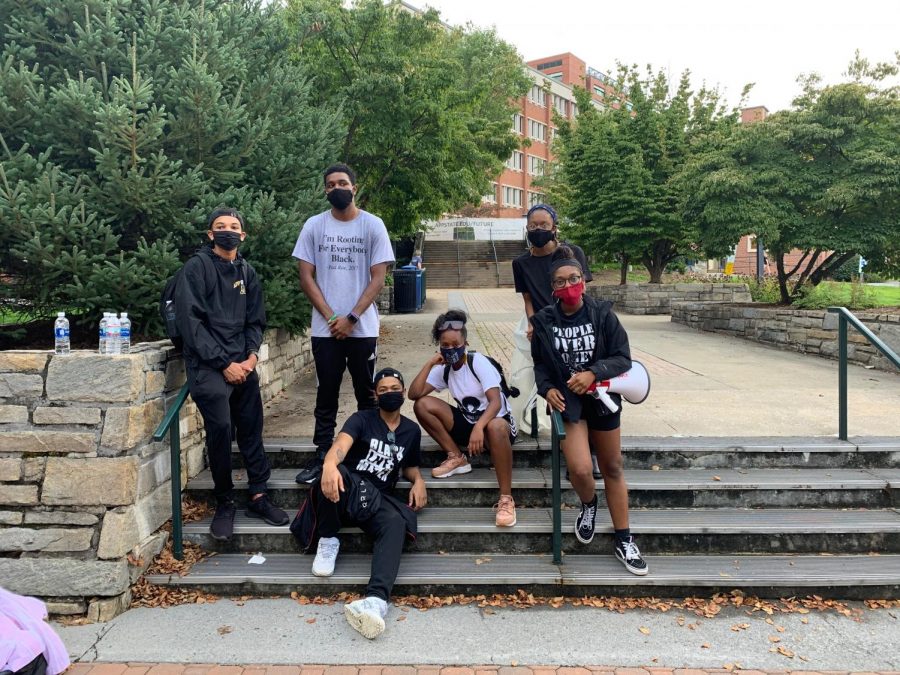

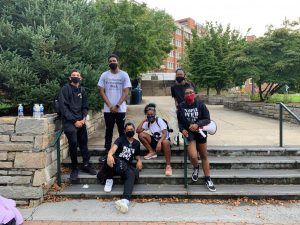
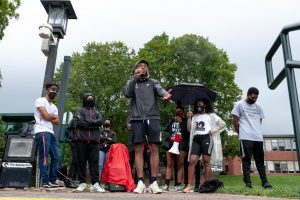
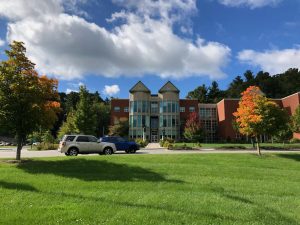
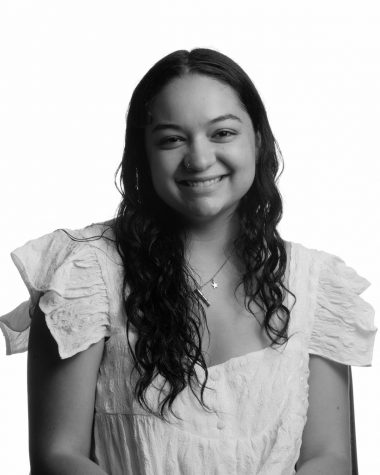






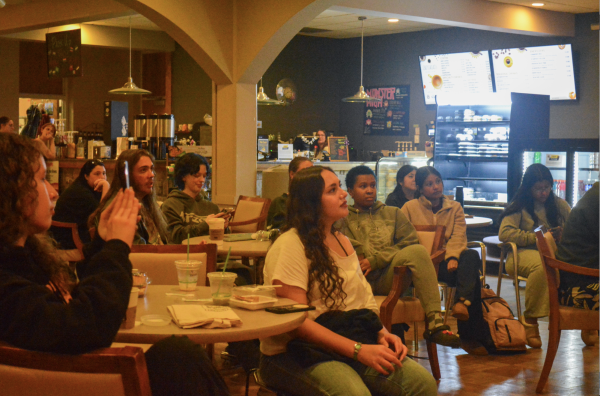

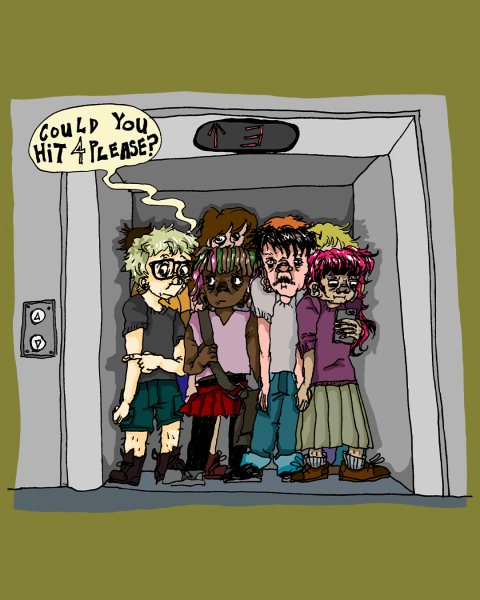


MuChao • Dec 14, 2020 at 9:34 am
Pretty much everything that you said is *spot on* Donald. Except that bit about recycling. The Chancellor doesn’t give a crap about sustainability efforts, she only wants in for the photo ops and to use STBE and SD as sales tools to bring in more students to help suck more money out of them in order to prop of the economic black-hole that is Athletics. And she can get away with it, too, because she’s surrounded herself with a bunch of yes-men and toadies who aren’t afraid to straight-up lie to your face, talking about you, Pauly-boy.
Donald Wilson • Dec 9, 2020 at 9:59 pm
It’s really unfortunate that ALL students aren’t demanding that they have the best instructors, regardless of the professor’s gender, race, age, height, weight, and however else we wish to separate people. They should be upset they are witnessing the best faculty leave Appalachian. Students should be focused on getting the best education possible: the best faculty, the best classrooms, the best technology, the best study abroad program, the most generous financial support, etc. But they are focused on creating a social environment that makes them feel comfortable. But students often don’t know better. They would argue against exams and firm deadlines. The really sad part of this travesty is the administration. They should know better, but sadly the Chancellor is also focused on creating safe spaces instead of learning spaces. As a result, Appalachian has been in decline for 6 years and it appears to be continuing on that trajectory. Sad.
Black at App make good points, as well as other groups. That is not the problem. The problem is that Appalachian is no longer about academic rigor and learning. It’s turned into an effort to create safe spaces, not offending anyone, and coddling kids. It’s become a social justice enterprise to shape people’s minds rather then educate their minds–those are not mutually exclusive, but they are not the same thing either. This new reality at Appalachian does not prepare students for their future life and careers much more than working at a non-profit for 4 years..
College has become a 4 year session that seeks to reaffirm kids self-worth and self-esteem. It is no longer challenging them and educating them to prepare them for lives and careers. Appalachian has watered down admissions and academic rigor. Sad.
Just look at what the Chancellor focuses on—football and diversity and recycling. All great things, but it is shocking that the Chancellor says nothing and does nothing for academics. She doesn’t care that good faculty are leaving and consequently student learning is declining. Not surprisingly, the first academic initiative she undertakes is inserting diversity in the general education curriculum….which is actually not academics at all. She doesn’t understand that attending college is suppose to challenge students’ preconceived notions, beliefs, knowledge, their abilities, etc. It is suppose to be uncomfortable and present uncomfortable material. The Chancellor has watered down admissions and she has watered down the academics. She’s turned Appalachian into a 13rd grade extension of high school that is hardly distinguishable from a community college. Sad.
MuChao • Dec 3, 2020 at 6:53 am
Lol! David, no one cares that you’re an alumni, that gives you precisely *zero* clout in this situation, and it’s honestly hilarious that you feel the need to even bring it up. How about you just keep your 40-year out-of-date ideas down in Charlotte, and spare us your feigned indignation.
While you’re at it, read a f’n history book. How do you think this country was even founded? By asking nicely? When power structures fail (or refuse) to listen to the concerns of its individuals, then the next logical step is demands. Considering the reprehensible resource vampire we have at the helm of AppState currently, that’s about the only way to get her attention.
David Clayton • Nov 30, 2020 at 11:28 pm
Who are you to make demands, Black at App State? Terrorists make demands.
If you’re uhappy at ASU, there are 7 HBCU’s in NC to chose from
Pick one and go
Charlotte,NC
Class of ’81